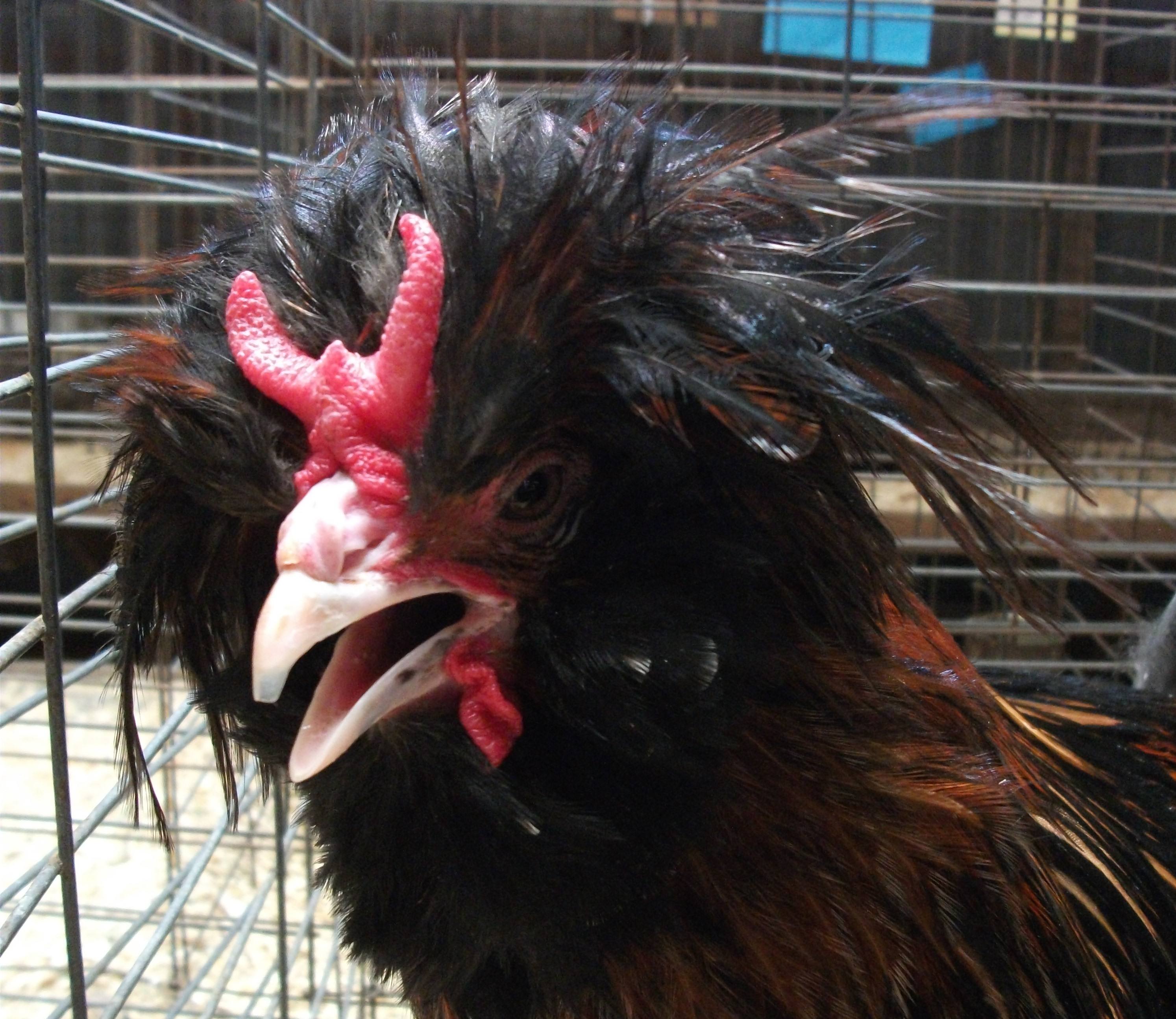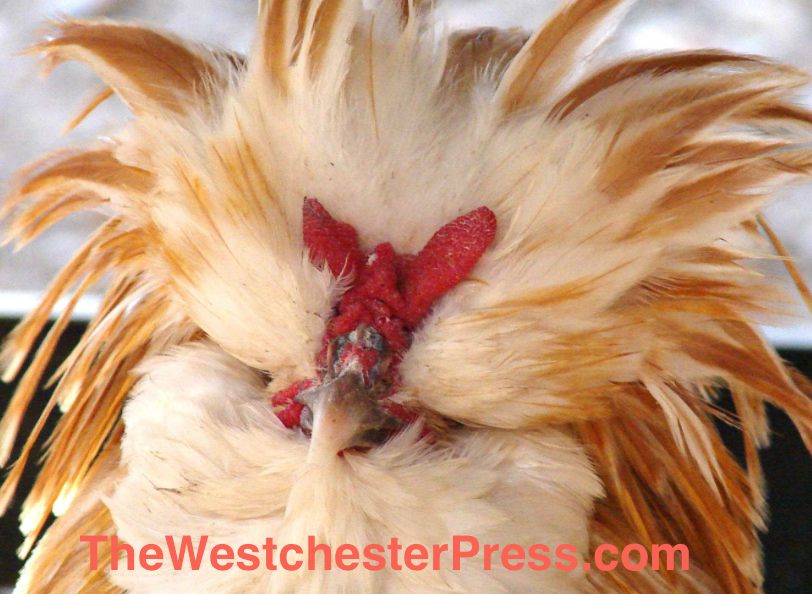

Scary Chicken Story for Halloween 2012
Filed Under: Blogs @ "Just a Couple of Chickens"
by Corinne
Just A Couple Of Chickens tells about Buff Laced Polish
Chickens
In honor of Halloween, I am going to tell you a story of a
very scary chicken.
How scary is a chicken?
It was a …………ROOSTER!
Now that’s scary.
By the time this true story took place, I had come to terms
with the death of my rooster loving dreams. I had raised several roosters, due
to an unfortunate straight run order from a hatchery, and tried very hard to
counsel them out of their brutal, blood-letting ways. And I’d failed. I’d
gotten scratched, pecked, slashed, and ambushed. I’d given up and perfected my
rooster mole recipe.
But there was one guy left. My gentle, sweet, bumbling,
slightly unsteady Buff Laced Polish.
He was a beauty. With a weird horned comb.
The day that I was down in a crouch, trying to collect eggs
from the farthest corner of the hen house, I thought he was coming over to tell
me a knock-knock joke. Or show me a
particularly good juicy bug in the straw. It was therefore a complete surprise
to see him, as if in slow motion, leap into the air like a nasty ninja and
stretch out his wickedly sharp spurs in a full-out attack.
He could have laid open my face to the bone… if he hadn’t
clotheslined himself on the hen house door. It was kind of funny, but I was
shaken. If he hadn’t collapsed in a whomping crunch on the hen house doorstep,
I would have been in big trouble. His
spurs were over two inches long.
Pretty scary…
I acknowledge that there are lots of people out there who
have good rooster stories, but I haven’t lived them myself. At the end of the
day, there’s a reason the rooster is free....
Happy Halloween!
Fun Facts About Candy Corn
- When the Goelitz Confectionery Company first produced candy corn (1880), it was called "Chicken Feed." The boxes were illustrated with a colorful rooster logo and a tag line that read: "Something worth crowing for."


